
After staying several years in internally displaced persons’ camps or with host families elsewhere, locals are returning to South Waziristan. Due to extensive destruction during the conflict, starting again has been tough, especially for the poorest and the most vulnerable. Despite these hardships, a positive development has emerged — communities are passionate to educate their children, both boys and girls.
Since returning, the elders have held numerous jirgas with the army to discuss how to achieve lasting peace and a sustainable economic future. Perhaps, the exodus to other parts of Pakistan created a better understanding among the communities of the value of education and its role in achieving a better life. In a region where literacy rates for males is 29 per cent and for females just three per cent, this is a big step forward.
There are so many positive signs of change. During a visit in March, I attended the rehearsals for a Pakistan Day school concert in Spinkai Raghzai, one of the poorest villages. Like children all over the country, preparing for a national day celebration, the children in Spinkai Raghzai were just as excited, though a little nervous about performing in front of their peers and guests.
The theme was peace and education, developed around the quotes of the Quaid-e-Azam and Allama Iqbal. But what made this little pageant so special was the setting. This is a post-conflict environment where children and their families have suffered terror, tragedy and great loss. In the past, the Taliban ran suicide-training camps in Spinkai and it has been the scene of unimaginable horror. Even now, the children there suffer anxiety that the militants might return.
It was hard not to be emotional. Only hard-hearted cynics could fail to be touched by the sense of occasion, or how remarkable this was in a now-peaceful village with so dark a recent history, or to mock the children’s hopes and enthusiasm for a peaceful future. I was reminded of a quote from Arundhati Roy’s, The God of Small Things, “That’s what careless words do. They make people love you a little less.”
There is little understanding in the cities of the complex challenges of building lasting peace in the tribal areas, or what the people have suffered. In the minds of most, it is a lawless and wild place where nothing good ever happens. This makes it all too easy to demonise the people and to dismiss the valuable work being done with the communities to effect positive change.
In post-conflict situations globally, it is the role of militaries to stabilise an area and start the rebuilding and rehabilitation process until the civil administration is capable of assuming its responsibility of taking care of the people. In South Waziristan, it is no different. For now, it falls to the army to take the lead role to help the communities resettle and rebuild their lives. The reality is that without this, very little would be happening and the locals would remain displaced people for many years to come, or return to chaos.
But progress is inhibited by a lack of donor support and very few UN agencies or NGOs have the funding to work in the area. This may soon change as South Waziristan has now been included in the first Early Recovery Assistance Framework for Fata, developed by the UNDP and the Fata secretariat. It is further hoped this will attract much-needed donor funding to implement a wide range of programmes already being conducted by the army and local NGOs.
In the past, lack of education and poverty has fanned militancy and brought great devastation to this area and to the entire nation. So what better request could the people of a war-torn region have made than for their right to a better life through education?
Published in The Express Tribune, May 22nd, 2013.
COMMENTS (11)
Comments are moderated and generally will be posted if they are on-topic and not abusive.
For more information, please see our Comments FAQ
1736495349-0/Untitled-design-(22)1736495349-0-405x300.webp)
1736494948-0/tesla-(2)1736494948-0-165x106.webp)


1736492771-0/Untitled-design-(21)1736492771-0-165x106.webp)
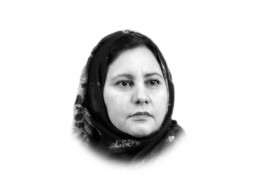





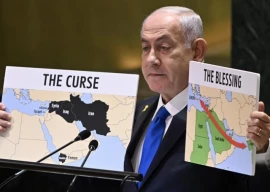
1736332856-0/Untitled-design-(20)1736332856-0-270x192.webp)

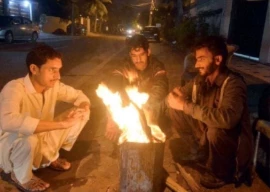
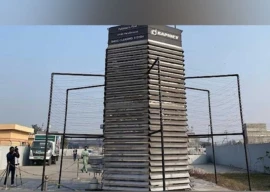
1736334465-0/sidra--(45)1736334465-0-270x192.webp)

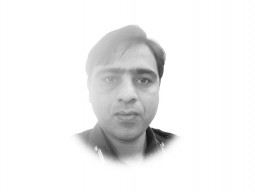
Very well written. Very much appreciated. The lesson learnt is invest in Education, Education And education...
With reference to last comment, the content of article is based on education and not the administrative system. The awareness on education i think is appreciable. Well done brave and courageous tribesmen and women!
And she forgets to mention the actual problem: The Frontier Crimes Regulation. After all, PR mustn't mention uncomfy stuff.
Proper political participation and representation is also important. Only 6351 out of 108056 eligible voters could vote in a mismanaged election thanks to the people in charge who barely put in any effort to do it a better way considering that that the population is widely dispersed throughout the country.
at least something good to hear, something good to cheer, not the as usual story of depression, destruction and lost hope.
Nicely Done. I belong to S.Waziristan myself & I hope oneday the people in Waziristan get the aid & peace that they deserve. They`ve earned it!!
Excellent Article! This is the job of elected govt to educate people and bring them in the national stream. People of South & North Waziristan were ignored by the elected govts of Pakistan from the last 60 years and this is the reason they left behind in all walks of life especially education. I hope Pakistan Army with the help of Pakistan Govt will continue their efforts to provide these poor people with better health education & infrastructure facilities. Things cannot change suddenly but one day when these people will become educated they will become good part of Pakistani society and will play their role in development of Pakistan.
A simple, easy to understand and clearly expressive article is not only inspiring but also encouraging and informative. It makes me happy to know that at long last, finally education is making it's way into the minds of people who before did not care or failed to realize that education is the only way for a healthy future for any human being. All the best to the people of South Waziristan.
I share your enthusiasm at the prospects for improved education and development for all in the Tribal Areas, especially girls. You are absolutely right about the interaction of people from FATA with other settled regions of Pakistan. I have seen first hand, how citizens from that area voice that they would like to have the same facilities that were unknown to them until they travelled to Peshawar or Islamabad. Thank you for an inspiring article and a well deserved thanks to the Pakistani military who has secured the area from criminals. They have done a phenomenol job of securing and rehabilitating the area. I hope they continue to do the same.
Great positive article. Good to know that the army is helping out. The army's help will demonstrate that their leaders have the best interest of the people in their minds and if possible would prefer no army operations anywhere in the country, like they were forced to carry out in Swat.